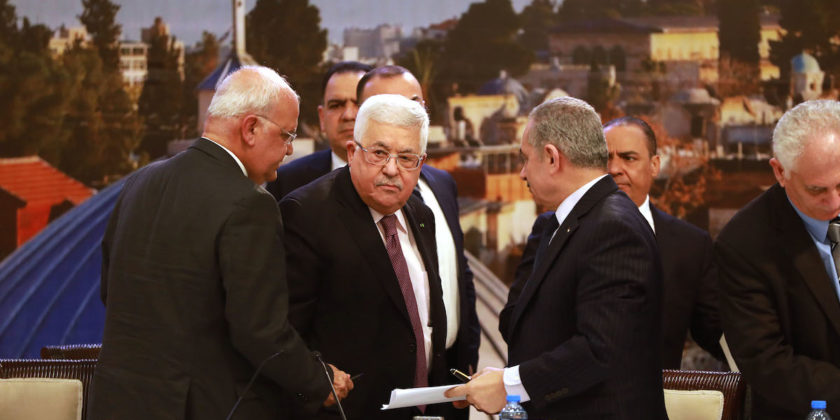The doable part of Trump’s deal: ‘Expanding the existent security cooperation’
Febbraio 18, 2020

Amer Al Sabaileh
Director of Security Languages - Senior political and security analyst
Feb 02,2020
The peace plan released by the United States this week confirms President Donald Trump’s strategy of adopting the existing situation that he has created as the status quo. It is also important to highlight his comments in his meeting with Israeli Prime Minister Benjamin Netanyahu, that the plan will not be imposed on Palestinians. If the plan is refused, the status quo remains, without a deal, “life goes on”.
Palestinians are in control of their own destiny in this sense, and the decision is with them. The plan covers all aspects of Palestinian life, from school curricula to building a modern state, with infrastructure and modern institutions based on transparency and accountability. The Palestinian political parties have not accepted the plan, but they have little options on the ground. The rejection is not going to stop Israel taking concrete steps on the ground, narrowing the Palestinian margin of resistance. This might be the direction in which life goes on, according to Trump’s words.
There has been no interference from other regional or international powers, giving the US exclusivity to shape the vision and approach for the plan, and how to proceed.
The White House has confirmed that once it has agreement from both parties, then it would include the UN to replace all previous drafts and have the international community rubber stamp it.
There are many areas of the deal that will be complex to agree to and implement. Clearly refusing the right of return for Palestinian refugees is one. Also difficult is the call for Arab countries to step up to their moral responsibility and integrate Palestinians as the state of Israel does with Jews. This is a widespread issue; for example, in Lebanon, Palestinians have been prevented from entering the labor market for decades, even those born in Lebanon. They are for the most part barred from owning property or entering desirable occupations, including law, medicine and engineering. To gain employment, Palestinians are required to receive government-issued work permits, but remarkably few are ever given to Palestinian refugees.
Practically, from the US point of view, both Jordan and the Palestinian Authority have a working security coordination agreement with Israel, meaning that there are several elements of the US peace plan that could be implemented immediately. The proposed counter terrorism cooperation, outlined below, could facilitate progress.
“The United States recommends the establishment of a regional security committee (“RSC”). The RSC’s task would be to review counter terrorism policies and coordination. Ideally, the RSC would include security representatives from the United states, the state of Israel, the state of Palestine, the Hashemite Kingdom of Jordan, the Arab Republic of Egypt, the Kingdom of Saudi Arabia, and the United Arab Emirates.”
The existing cooperation might even be strengthened to create a wider regional alliance without tackling the whole peace issue. For example, the plan includes:
“These shared interest in the region should be expressed in closer ties between the State of Israel and the Gulf Cooperation Council. Moreover, the State of Palestine, the Arab Republic of Egypt, the Hashemite Kingdom of Jordan and the State of Israel (and such additional countries in the region who wish to join) should form an Organisation for Security and Cooperation in the Middle East (the “OSCME”), similar to the model used by the Organisation for Security and Co-operation in Europe. The OSCME mandate should include, among others, issues such as early warning of conflicts, conflict prevention and crisis management.”
While political taboos might be difficult to address, the issue of security and fighting terrorism represents shared objectives, creating ground for wider cooperation and more involvement between Arab countries and Israel, which would improve relations under the pretext of addressing security and threats. So tactically, the US might rely more on the existent security cooperation to pave the way to the deal, regardless of any current refusal of the whole plan.
Dr. Amer Al Sabaileh
What's Your Reaction?
Excited
0
Happy
0
In Love
0
Not Sure
0
Silly
0
Amer Al Sabaileh
Director of Security Languages - Senior political and security analyst
